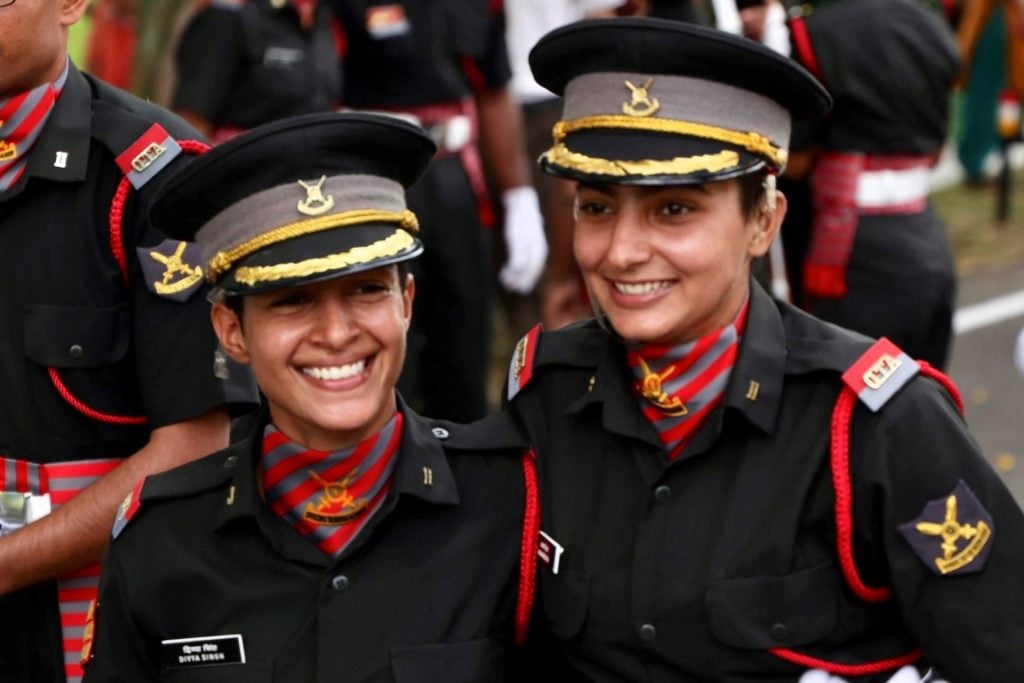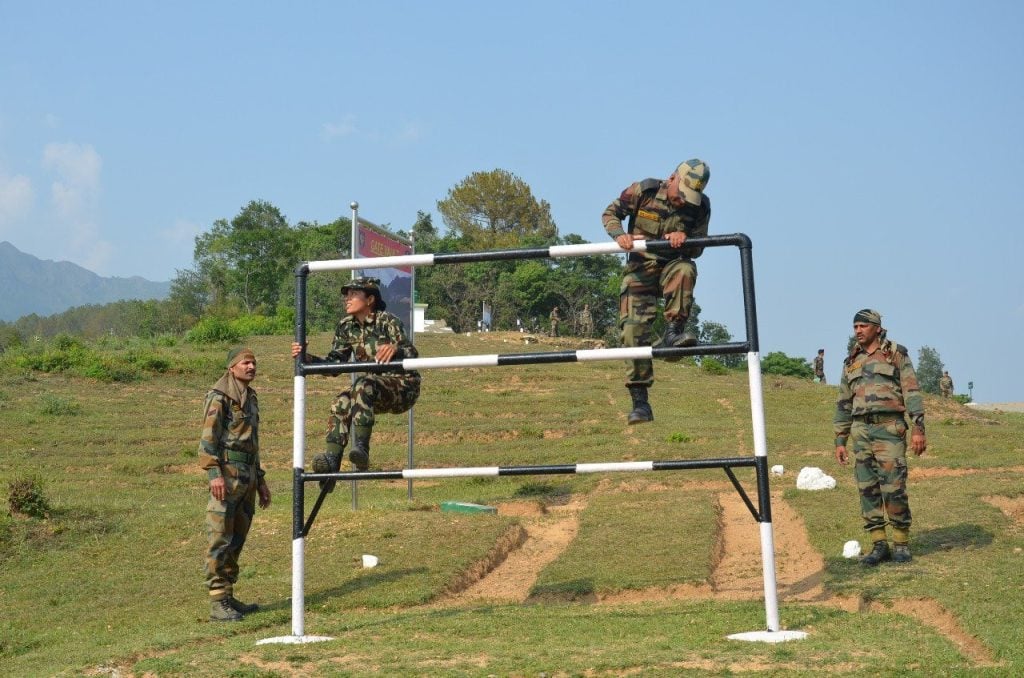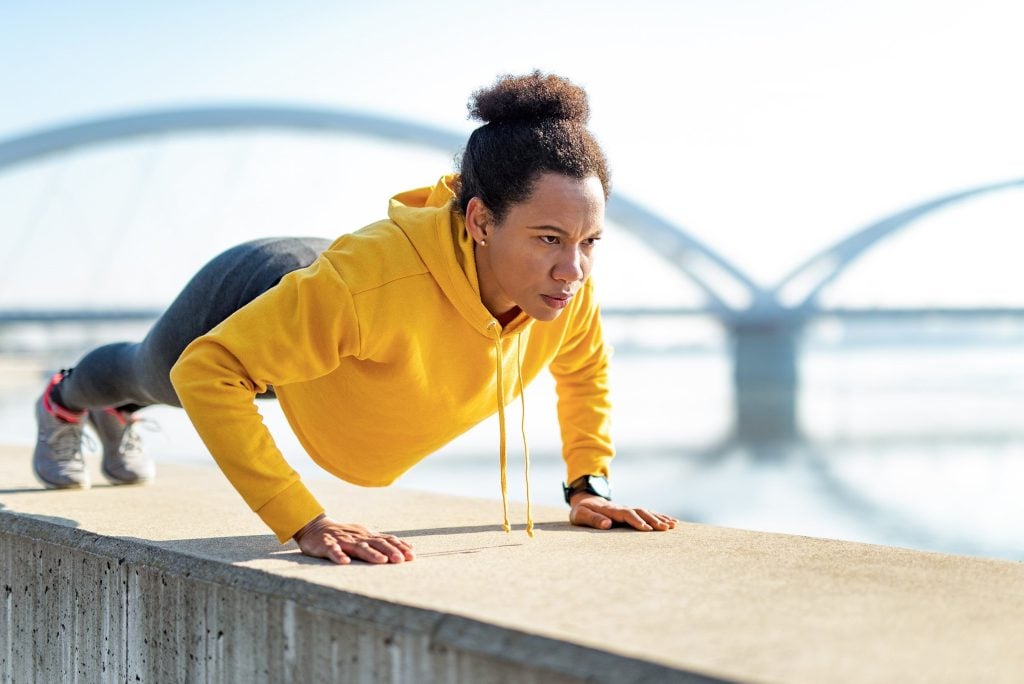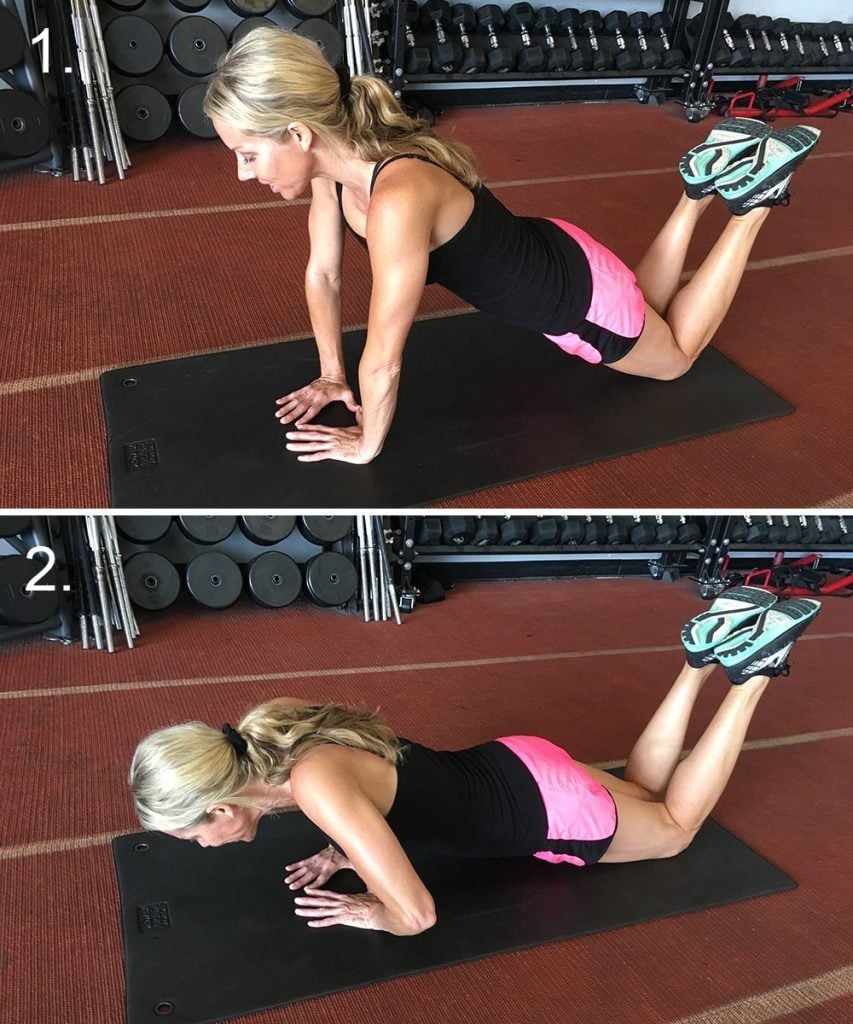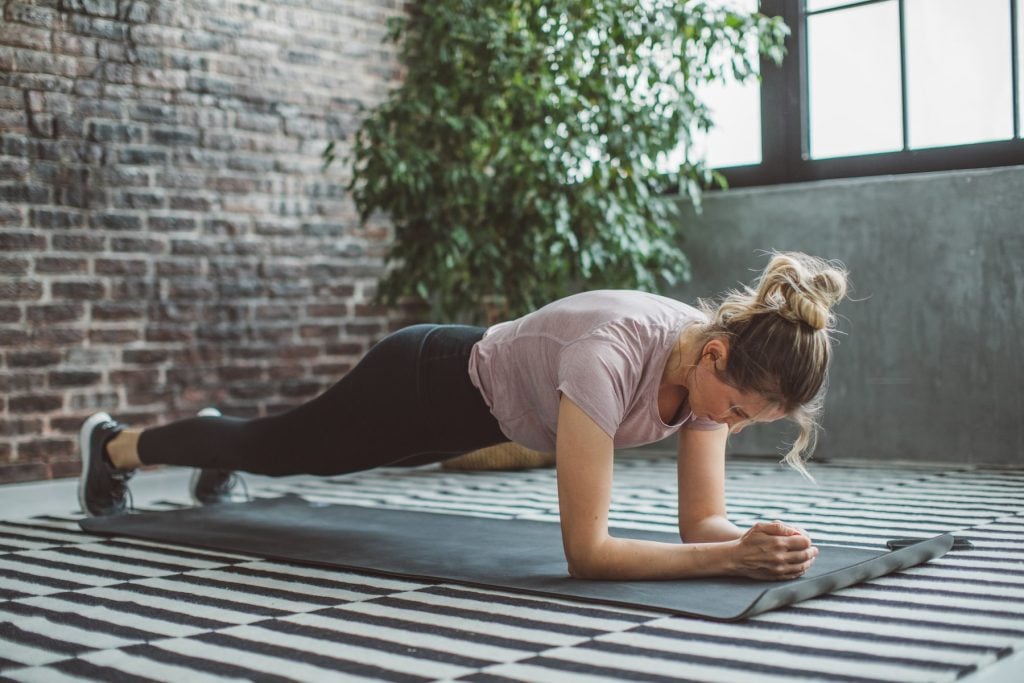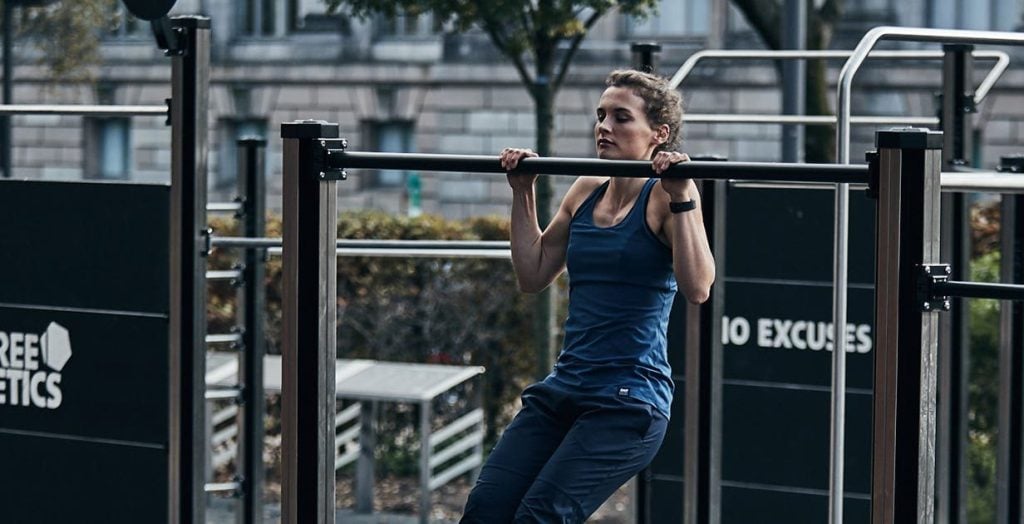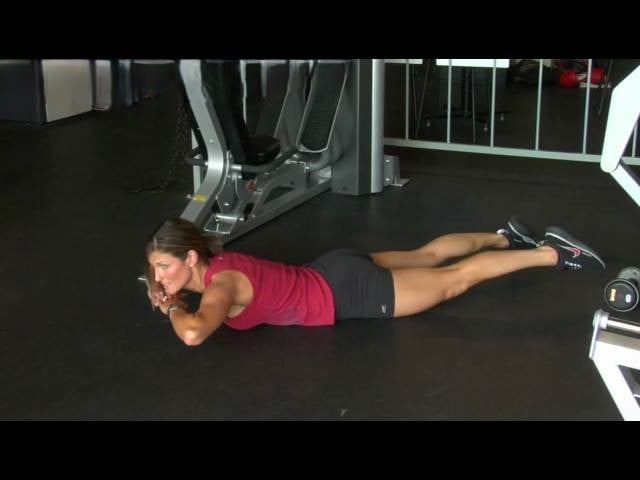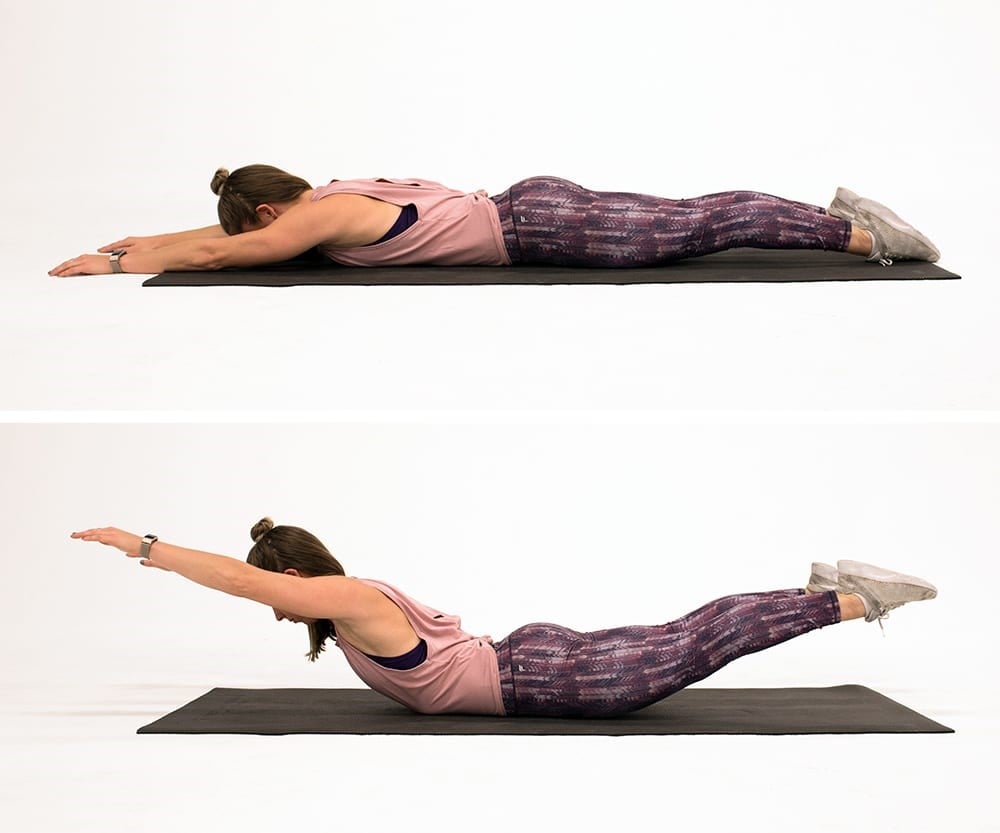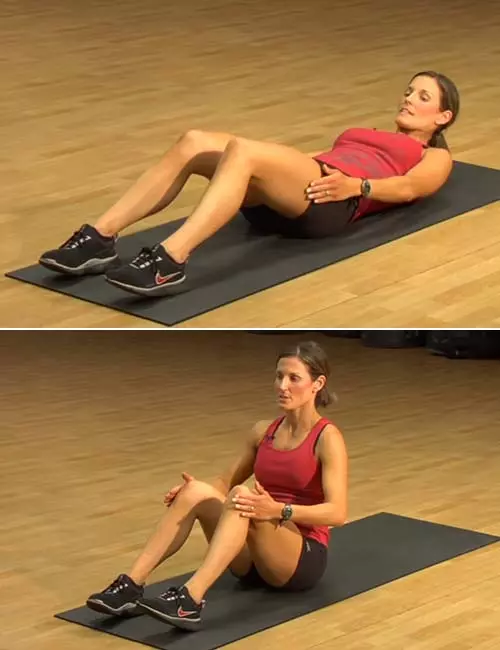In recent years, we have witnessed a remarkable shift in the aspirations of women, who have increasingly turned their sights towards careers in the defence services. This surge in interest is a testament to the growing empowerment and confidence of women, who are now embracing the challenges and opportunities that the defence sector offers. However, the path to joining the defence forces is not without its physical demands, and women aspirants must be prepared to meet the rigorous requirements set forth by these institutions.
One of the key areas of focus for women defence aspirants is the development of upper body strength. Traditionally, women have had a higher lower-to-upper-body strength ratio, which can pose a challenge in certain aspects of military training and operations. To overcome this, it is crucial for women to engage in targeted exercises that specifically target and strengthen the upper body muscles.
In this comprehensive article, we will explore the Top 9 Exercises for Women Defence Aspirants to Strengthen Upper Body. These exercises have been carefully selected based on their ability to target the major muscle groups in the upper body, while also improving overall physical fitness and core stability. By incorporating these exercises into their training regimen, women defence aspirants can enhance their chances of success and ensure a smooth transition into the demanding world of the defence forces.
Also Read | Why Physical Fitness for Defence Aspirants is Essential?
The Importance of Upper Body Strength for Women Defence Aspirants
Joining the defence forces is a noble and challenging pursuit, and women aspiring to serve their country must be prepared to meet the physical demands of the job. One of the critical aspects of this preparation is the development of upper body strength.
Women typically have a higher lower-to-upper-body strength ratio, which can pose a significant challenge during military training and operations. This disparity in strength can lead to an increased risk of injuries, as well as potential underperformance in tasks that require upper body strength, such as carrying heavy equipment, scaling obstacles, or performing push-ups and pull-ups.
By focusing on exercises that target the upper body, women defence aspirants can not only improve their overall physical fitness but also enhance their chances of success in the selection process and subsequent training. Strong upper body muscles can provide the necessary support and stability for a wide range of military tasks, from handling weapons to navigating challenging terrain.
Moreover, a well-developed upper body can also contribute to improved posture, balance, and core stability – all of which are essential for maintaining optimal performance and reducing the risk of injuries during the rigorous training and operational demands of the defence forces.
The Top 9 Exercises for Women Defence Aspirants to Strengthen Upper Body
To help women defence aspirants achieve their goal of building upper body strength, we have compiled a comprehensive list of the top 9 exercises that have been proven to be highly effective. These exercises target the major muscle groups in the upper body, including the chest, shoulders, arms, and back, while also engaging the core and lower body muscles for a more holistic approach to physical fitness.
1. The Push-Up
The push-up is widely regarded as the king of all upper body exercises, and for good reason. This simple yet highly effective exercise engages a multitude of muscle groups, including the chest, shoulders, arms, and core. By performing push-ups, women defence aspirants can develop a strong and stable upper body, which is essential for a wide range of military tasks.
To perform the push-up correctly, begin in a high plank position with your hands shoulder-width apart and your body in a straight line from head to heels. Slowly lower your chest towards the ground, keeping your elbows close to your body, and then push back up to the starting position. Aim to perform multiple sets of 10-15 repetitions, gradually increasing the number as your strength improves.
2. The Triceps Push-Up
The triceps push-up is a variation of the classic push-up that places a greater emphasis on the triceps, the muscles located on the back of the upper arms. This exercise is particularly beneficial for women defence aspirants, as the triceps play a crucial role in upper body strength and stability.
To perform the triceps push-up, start in the same position as a regular push-up, but instead of having your hands shoulder-width apart, bring them closer together, with your thumbs and index fingers forming a diamond shape. As you lower your body, focus on keeping your elbows tucked close to your body, and push back up using the power of your triceps.
3. The Plank
The plank is a fundamental core-strengthening exercise that also engages the upper body muscles, particularly the shoulders and arms. By holding a plank position, women defence aspirants can develop isometric strength in their abdominal muscles, which provides crucial support for the entire back and spinal column.
There are several variations of the plank, including the forearm plank, straight-arm plank, and side plank. Aim to hold each plank position for 30-60 seconds, gradually increasing the duration as your strength improves. Remember to maintain proper form and engage your core throughout the exercise.
4. The Chin-Up or Pull-Up
The chin-up or pull-up is a challenging yet highly effective exercise that targets the latissimus dorsi muscles (the largest muscle in the back), as well as the biceps, shoulders, and core. This exercise requires significant upper body strength and is often considered a benchmark for military fitness.
While the chin-up or pull-up can be a daunting task for some women defence aspirants, it is essential to work towards mastering this exercise. Start with assisted chin-ups or pull-ups using a resistance band or machine, and gradually progress to unassisted versions as your strength increases.
5. Side Crunches
Side crunches, also known as oblique crunches, are a targeted core exercise that specifically engages the oblique muscles. These muscles play a crucial role in stabilizing the spine and improving overall balance and posture, both of which are essential for women defence aspirants.
To perform side crunches, lie on your side with your legs stacked and your hands behind your head. Engage your oblique muscles to lift your torso off the ground, then slowly lower back down. Repeat for the desired number of repetitions, then switch sides.
6. Lower Back Extension
The lower back extension is a simple yet highly effective exercise that targets the muscles of the lower back. These muscles are responsible for stabilizing the spine and maintaining proper posture, which is crucial for women defence aspirants during their training and operations.
To perform the lower back extension, lie face-down on the ground with your hands behind your head. Engage your lower back muscles to lift your torso and legs off the ground, then slowly lower back down. Aim for 10-15 repetitions per set, focusing on maintaining proper form and breathing throughout the exercise.
7. The Superman
The Superman exercise is a powerful upper and lower back strengthening exercise that also engages the core muscles. By lifting your arms and legs off the ground simultaneously, you can effectively target the muscles that support the spine and improve overall posture and stability.
To perform the Superman, lie face-down on the ground with your arms extended in front of you and your legs straight. Engage your back muscles to lift your arms, chest, and legs off the ground, creating a “Superman” pose. Hold this position for a few seconds, then slowly lower back down. Repeat for the desired number of repetitions.
Also Read | The Importance of Physical Fitness in the Armed Forces
8. Dips
Dips are an intense and effective isolation exercise that primarily target the triceps, but also engage the shoulders, chest, and lower back muscles. This exercise is particularly beneficial for women defence aspirants, as it can help to develop the upper body strength and lockout strength required for a wide range of military tasks.
To perform dips, position yourself between two stable surfaces (such as parallel bars or the edge of a bench) with your hands gripping the edges. Slowly lower your body by bending your elbows, then push back up to the starting position. Aim for 10-15 repetitions per set, focusing on maintaining proper form and engaging your core throughout the movement.
9. The Sit-Up
The sit-up is a classic core-strengthening exercise that can also contribute to upper body strength by engaging the muscles of the torso and back. This exercise is particularly beneficial for women defence aspirants, as it can help to improve overall body posture, flexibility, and range of motion.
To perform the sit-up, lie on your back with your knees bent and your feet flat on the ground. Place your hands behind your head or crossed over your chest, then engage your core muscles to lift your torso off the ground, reaching towards your knees. Slowly lower back down and repeat for the desired number of repetitions.
Implementing the Exercises: Frequency, Warm-Up, and Recovery
To effectively incorporate these upper body strengthening exercises into your training regimen, it is essential to follow a structured and consistent approach. Here are some key guidelines to consider:
Frequency
Aim to perform these exercises 4-5 days per week, allowing for adequate rest and recovery between sessions. It’s important to gradually increase the intensity and duration of your workouts as your strength and endurance improve.
Warm-Up and Cool-Down
Begin each workout with a 5-10 minute warm-up, such as light jogging, cycling, or jumping jacks, to prepare your muscles for the upcoming exercises. Similarly, finish your workout with a 5-10 minute cool-down, which may include gentle stretching and easy jogging or walking, to help your body recover.
Breathing and Proper Form
Throughout your workouts, focus on maintaining proper breathing techniques and correct form. This will not only help to maximize the effectiveness of the exercises but also reduce the risk of injury.
Hydration and Nutrition
Ensure that you stay well-hydrated by drinking plenty of water before, during, and after your workouts. Additionally, maintain a balanced and nutrient-rich diet to support your body’s recovery and adaptation to the increased physical demands.
By following these guidelines and incorporating the top 9 exercises for upper body strength into your training regimen, women defence aspirants can build the necessary physical capabilities to excel in the selection process and thrive during the rigorous training and operations of the defence forces.
Also Read | Physical Fitness Routine For AFCAT Aspirants Preparing For SSB Interview
Conclusion
In the pursuit of a career in the defence services, women have shown an unwavering determination and a steadfast commitment to overcoming the physical challenges that come with this noble calling. One of the key areas of focus for these aspiring women is the development of upper body strength, which is essential for a wide range of military tasks and operations.
By incorporating the top 9 exercises outlined in this article – the push-up, triceps push-up, plank, chin-up or pull-up, side crunches, lower back extension, the Superman, dips, and the sit-up – women defence aspirants can effectively build the upper body strength and overall physical fitness required to succeed in the defence forces.
Remember, the journey to joining the defence services is not an easy one, but with the right mindset, dedication, and a comprehensive training plan that prioritizes upper body strength, women can rise to the occasion and fulfill their dreams of serving their country with honor and distinction.
FAQs
1. How can I make my upper body strength stronger?
Beginners at the gym can develop upper body strength by performing compound exercises such as push-ups, bench presses, back rows, and assisted pull-ups. Aim to train your upper body twice a week with weights that provide a challenge. For strength building, it’s often suggested to use heavier weights with fewer repetitions.
2. Who has better upper body strength?
The difference in muscle strength and size between the sexes is more complex than it may seem. Women’s upper body strength is approximately 50 to 60% of men’s, while their lower body strength is around 60 to 70% of men’s lower body strength. Women’s core/trunk strength is roughly 60% of men’s.
3. Is upper body strength attractive?
However, developed muscles are only part of the story in terms of male attraction, so before you rush to the gym to start working on that upper body strength, remember that there is a multitude of other factors that influence male attraction. Upper body strength is simply one part of what makes men attractive.
4. How to target all upper body muscles?
Push-ups are a classic exercise that effectively works multiple upper body muscles. Engage your triceps, shoulders, and even a bit of your biceps to lift your body off the ground and maintain that position. This movement helps enhance your muscles’ endurance, allowing them to stay flexed for extended periods.
5. What is the best indicator of upper body strength?
Two key tests used to assess maximal anaerobic capacity and power of the upper extremities are the Upper Body Wingate Anaerobic Test and the Medicine Ball Put. Both tests have been repeatedly validated and shown to be reliable across various populations.

